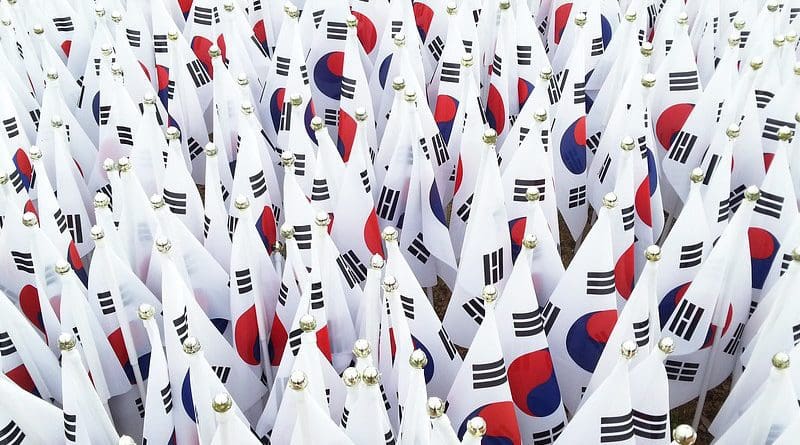South Korea: Interpreting National Assembly Election Results – Analysis
By IPCS
By Dr. Sandip Kumar Mishra
The opposition Democratic Party maintained its majority in the elections to the South Korean National Assembly that took place on 10 April 2024. Overall, opposition parties in South Korea won a total of 192 seats in the 300-member National Assembly, though the seats held by the main opposition party, the Democratic Party, went down from 180 to 175. A new party under the leadership of Cho Guk surprised everyone by securing 12 proportional seats. Cho Guk’s campaign raised the issue of misrule by South Korean President Yoon Suk Yeol and his administration. The ruling People’s Power Party was restricted to 108 seats in the elections. Even within the People’s Power Party, leaders considered to be critical of Yoon performed better.
The people’s verdict thus clearly demonstrates that a large majority of the South Korean public doesn’t appreciate the Yoon administration’s policies and performance. Yoon was elected in May 2022 by a margin of less than one per cent, and his popularity has been considerably low since then. This is due to the way he ran the government as well as his policies.
On the domestic front, Yoon has been criticised for giving more prominence in his administration to people from a prosecutorial background. His government is in fact alleged to have used the prosecutor’s office to target opposition leaders such as Lee Jae-Myung, Cho Guk, and several others leaders who worked with the previous President Moon Jae-in. The Yoon administration has reportedly tried to sideline the media, and the country’s democratic credentials in global rankings have slid backwards during his tenure. Yoon has also made several personal and diplomatic gaffes which haven’t gone down well with the South Korean public. His decisions, such as moving the president’s residence to the Yongsan area and increasing the number of annual medical seats in medical colleges across the country to around 2,000, have been seen as arbitrary. Yoon’s image was further affected by the corruption allegations against his wife, Kim Keon Hee, and her mother. When the previous National Assembly proposed an investigation of Yoon’s wife’s corruption cases, he vetoed the move.
Yoon has made some unprecedented moves on the foreign policy front as well. He attendedNATO Summits; held meetings with the Japanese prime minister and trilaterally, with the US and Japan; created a fund for South Korean victims of forced labour; took a tough stand on North Korea; released South Korea’s Indo-Pacific strategy documents; and was dismissive of Chinese displeasure. Overall, he tried to get closer to the US and Japan, and in the process, showed little regard to both China’s negative views and North Korean provocations. By getting involved in big power competition and tilting excessively towards the US, Yoon is perceived to be taking South Korean foreign policy down a risky path, which may hurt the country’s national interests.
South Korea’s election results thus reflect popular discontent with the Yoon administration. These results are certainly going to put pressure on the government, and Yoon’s next three years are going to be long and they are going to test him. In this remaining period of time, either Yoon will seek to mend his ways, or governance is going to run into deadlocks and confusion. More strength to opposition parties in the National Assembly along with the rising popularity of critics within his own party will likely constrain Yoon’s policy decisions.
After the election results, Yoon initially indicated an interest in greater communication with opposition leaders. One of his first moves was to invite opposition leader Lee Jae-myung for talks. It however won’t be easy for him to change course. This was reflected in one of his first detailed speeches following the elections. In it, instead of acknowledging his shortcomings, Yoon talked about how his administration had worked hard to identify the right direction for the country even though Koreans had failed to acknowledge it.
South Korean foreign policy, too, is not going to change because of the election results. Yoon’s efforts to build a more overt economic and security partnership with the US and Japan will continue. As before, this will likely strain South Korea-China relations. With North Korea also there is scant chance of any engagement or outreach. Seoul’s quest to become a global pivotal state will thus continue to guide the direction of foreign policy.That being said, the lack of domestic support will definitely weaken Yoon’s diplomatic stature. In all possibility, Yoon is going to be more embattled down the line. Over the next three years, South Korea will see more divisions between the Yoon administration and the National Assembly, which could impact the country’s progress. Whether these divisions will be manageable or contribute to a political crisis remain to be seen.
- About the author: Dr. Sandip Kumar Mishra is Professor, Centre for East Asian Studies, SIS, JNU, & Distinguished Fellow, IPCS.
- Source: This article was published by IPCS

